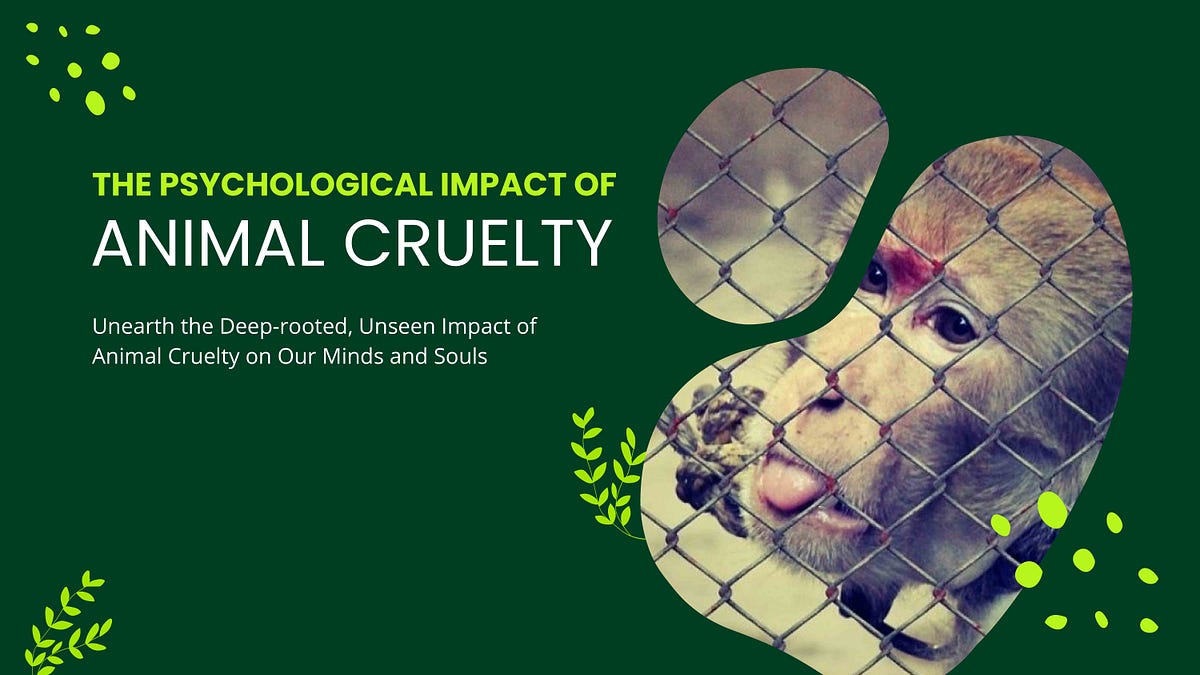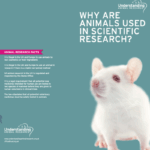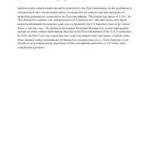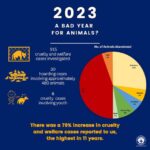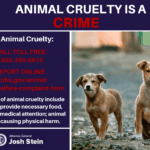The observance of animal cruelty evokes a spectrum of emotions. It presents not only a moral dilemma but also a profound psychological dilemma that reverberates through both individual lives and broader societal frameworks. Have you ever pondered how the maltreatment of animals could resonate within our collective psyche? The effects of animal cruelty stretch beyond the immediate suffering of the animals involved; they burgeon into existential challenges that ail our communities and contaminate our social fabric. Understanding this correlation between animal abuse and mental health requires a nuanced exploration of their interdependence.
The first area of intersection lies within the concept of empathy. Humans are often imbued with an innate capacity for empathy, which serves as a foundation for social cohesion. However, when individuals engage in or even witness acts of cruelty against animals, their ability to empathize can become distorted. A widespread desensitization may ensue, leading to a diminished capacity for compassion not just towards animals, but also towards one another. This emotional callousness cultivates a society where violence is normalized, complicating interpersonal relationships and promoting a culture of indifference.
Moreover, the effects of animal cruelty on mental health are far-reaching. Research indicates that individuals who perpetrate acts of animal cruelty often exhibit higher rates of antisocial behavior, indicative of underlying psychological issues such as conduct disorder or various phobias. Such detrimental mental states can permeate into broader societal issues, amplifying the cycles of violence. Children who witness or commit acts of cruelty against animals may struggle with emotional regulation and demonstrate increased aggression, contributing to a generational cycle of trauma.
Attention must also be directed to the victims of animal cruelty. Animals, much like humans, experience fear, pain, and trauma. The psychological burden of witnessing cruelty—whether it occurs individually or collectively—can trigger anxiety disorders, depressive symptoms, or post-traumatic stress disorder (PTSD) among onlookers, particularly in children and young adults who lack protective social frameworks. The horror of witnessing such acts can have persistent effects that manifest in various dimensions of life, including educational performance and social interactions.
Furthermore, these ramifications extend into familial structures. A home harboring chronic animal abuse may very well be a crucible for other forms of domestic violence. Studies have established a correlation between homes where animal cruelty occurs and increased incidences of child abuse or spousal violence. This suggests that the normalization of violence against animals can lead to an escalation in the willingness to inflict harm on family members, thus converting these homes into environments laden with fear and distress.
The societal challenges posed by animal cruelty are manifold, invoking questions of legal and ethical dimensions. Many jurisdictions still exhibit deficiencies in their animal welfare laws, rendering them inadequate to effectively combat the complexities of animal abuse. Legal frameworks often fail to recognize the gravity of animal cruelty as a precursor to larger societal issues. This lack of stringent measures not only allows for the perpetuation of violence against animals but also diminishes the opportunities for rehabilitative efforts aimed at emotional healing for both the victims—animal or human—caught in this cyclical web of suffering.
How might society challenge its complacency toward animal rights? The potential for change hinges on education. Programs designed to cultivate empathy and compassion for animals from an early age can mitigate the psychological impacts of cruelty. Schools and community organizations should implement educational curricula that emphasize ethical treatment of animals, showing children how their actions impact the lives of these sentient beings. Such interventions foster a culture of kindness, eventually extending to humans and creating a more harmonious societal landscape.
Additionally, social media platforms and community outreach initiatives can play pivotal roles in raising awareness, encouraging individuals to speak out against animal cruelty. Activism, when channeled effectively, has the potential to rally communities toward collective action, fostering discussions that lead to legislative changes. Highlighting—and celebrating—stories of resilience in the face of cruelty can ignite passion and connection, encouraging a grassroots movement against all forms of violence.
To conclude, the effects of animal cruelty permeate the mental fabric of society, influencing how we relate to one another and to non-human beings. This critical reflection not only reiterates the need for comprehensive interventions addressing animal welfare but also serves as an impetus for broader discussions surrounding mental health and societal violence. We must confront the uncomfortable reality that animal cruelty is not merely an issue involving animals; it is, at its core, a reflection of our humanity. The challenge is clear: Can we cultivate a society where compassion flourishes, transforming the tide of brutality into one of benevolence? This is not simply a question, but a call to action—an invitation to demand a meaningful change, one empathetic step at a time.
